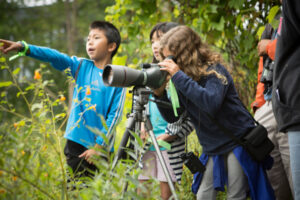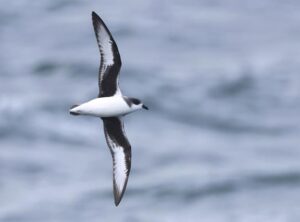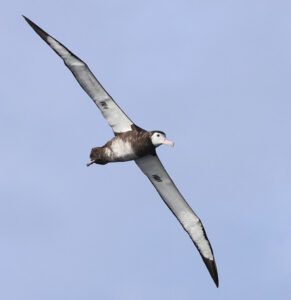MONTHLY MEETINGS
Monthly meetings are held on the second Monday of every month at 7:00 p.m. from September through May at the Cape Cod Museum of Natural History, 869 Rte. 6A, in Brewster, MA. The door opens at 6:30 to provide time to socialize and pick up information.
Meetings are held at the Cape Cod Museum of Natural History, Brewster. In addition, for those who cannot make it to the meeting, or prefer to remain at home, a zoom link will be posted close to the meeting date. Not all meetings will be on zoom.
PROGRAMS FOR 2024 – 2025
Sep 9, 2024
“The Symbiotic Relationship in Humpback Whales and Marine Birds” with Peter Trull
Zoom link for replay
Oct 14, 2024
“Falkland Islands—The Penguin Photo Adventure” with Shawn Carey
Nov 11, 2024
“Osprey – Egg Incubation, Chick Rearing and Wild Fostering” with Stephanie Ellis from WildCare
Zoom link for replay
Dec 9, 2024
Holiday Party featuring our two 2024 Hog Island Scholarship Recipients.
Come and get to know your fellow members.
Jan 13, 2025
“The Breeding Biology of the Common Loon” with James Paruk, Ph.D.
ZOOM recording for replay
Feb 10, 2025
“How Birds Created the World” … and Other Stories from The Complete Language of Birds with Randi Minetor
ZOOM recording for replay
Mar 10, 2025
“Making Your Shorebirds Count with Manoment’s International Shorebird Survey” with Lisa Schibley
ZOOM recording for replay
Apr 14, 2025
Mardelle Shepley, Ph.D., “Birds and Well-Being”

Do humans have an innate affiliation with nature? Do birds play a role in supporting our mental health? Multiple studies have confirmed that spending as little as 20-minutes outside has a significant restorative impact and, with specific regard to birdwatching, researchers have found that individuals who were able to view birds from their homes had lower levels of stress and anxiety and less depression than those who could not. In this presentation we will talk about research on the health benefits of being outdoors and the impact of birding on well-being.
Dr. Mardelle McCuskey Shepley, B.A., M.Arch., M.A., D.Arch., is an architect and environmental psychologist. An emerita professor at Cornell University in the Department of Human Centered Design and emerita Academic Director of the Cornell Institute for Healthy Futures. Dr. Shepley has authored/co-authored seven books, the most recent of which are Design for Mental & Behavioral Health (2017) and Peace by Design (2024).
May 12, 2025
Peter Flood – “The Chatham Petrel Expedition and a New Zealand Seabird Primer”
Worldwide, seabirds face ongoing anthropogenic threats at sea, and on the breeding grounds. Once historic and abundant nesting colonies of seabirds have often been directly or indirectly decimated, and/or eliminated, by human-induced pressures from habitat degradation, and the introduction of mammalian predators, including rats, mice, pigs, dogs and cats, driving many seabird species to remote (pest-free) offshore islands, where a single island or acreage may host the only nesting location for a given species. From a conservation perspective, this is inherently dangerous, and places many species at risk for extinction.
One could argue that New Zealand and its surrounding islands may very well be considered the seabird capital of the world. Conservation efforts for seabirds in New Zealand have been considered innovative and effective in terms of habitat restoration, translocation and predator removal, providing opportunities for seabird populations to increase.

The Chatham Petrel Expedition was another installment of the Extreme Gadflies Series Expeditions, designed and organized by world renowned seabird expert Hadoram Shirihai. The purpose of these expeditions is to observe, study and photographically document all the world’s tubenosed seabirds as part of an ongoing (25+ year) body of work, which will ultimately culminate in a written four-volume tubenose monograph. The Chatham Petrel Expedition was conducted in March of 2023, and consisted of a crew of six experienced seabird enthusiasts (including Peter) that spent 5 days at sea off the Chatham Islands, New Zealand. The “Chathams” lie approximately 500 miles to the east of New Zealand, and are comprised of the main Chatham Island, Pitt Island, Southeast Island, and several smaller island groups that host amazing numbers and diversity of seabird species.
As the title suggests, the focus of this expedition was to observe, study, and photograph a very rare gadfly petrel at sea – the Chatham Petrel, which currently nests only on the Chathams. Additionally, ongoing studies of several species of prions (whalebirds) in the area, coupled with documenting numbers of albatrosess, petrels, storm-petrels and shearwaters off the Chathams, made for a successful and exciting expedition.

For this presentation, Peter will share some of the expedition highlights through his experiences, as well as photographs touching on the identification and ecology of the Chatham Petrel. In addition, Peter will provide a primer for some of the other amazing and enigmatic tubenosed seabirds found in and around the Chathams, and New Zealand in general.
Peter Flood, a Cape Cod resident and CCBC member, has a passion for ornithology as evidenced by his varied professional experiences which include: serving as naturalist for Mass Audubon’s Wellfleet Bay Wildlife Sanctuary leading birding tours and educational programs related to bird identification, natural history and biology; conducting Mass Audubon’s aerial seabird and waterfowl surveys of Nantucket Sound as part of the proposed “Cape Wind” project; and conducting shorebird surveys for Manomet Center for Conservation Sciences. Currently, Peter’s birding interests are focused on the ecology, identification and the range/distribution of seabirds. He has spent thousands of hours at sea, on both the Atlantic and Pacific coasts, and other parts of the world, on various expeditions chasing, observing and photographing some of his favorite subjects.
In addition, Peter volunteers his time with NOAA, conducting seabird surveys of the Stellwagen Bank National Marine Sanctuary off Cape Cod, and also volunteers for the Center for Coastal Studies in Provincetown, providing photographic data and behavioral observations of endangered North Atlantic Right Whales off Race Point, Provincetown, MA. Peter enjoys sharing his seabirding experiences, leading pelagic trips off Massachusetts and North Carolina, and previously served as Secretary on the Board of Directors for the Cape Cod Bird Club. His current profession is Director with Green Seal Environmental, LLC.
List of Past Programs and Speakers

